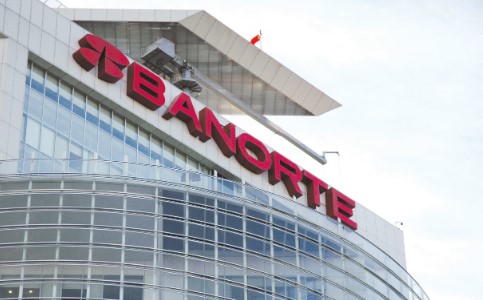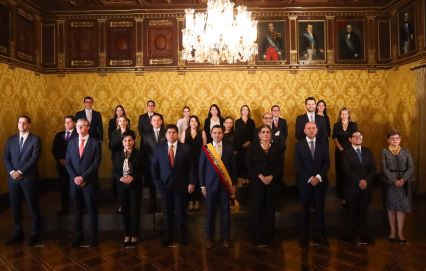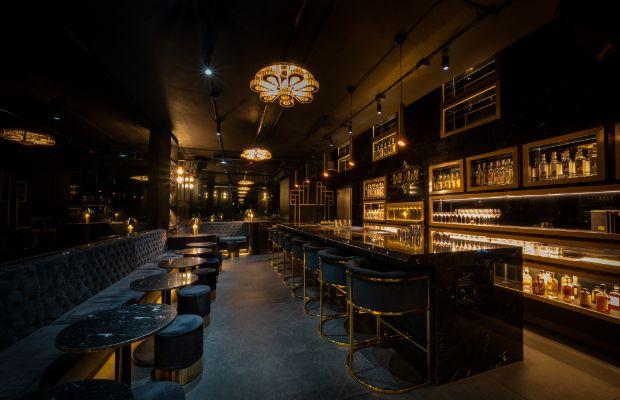

Mexican Banks: Nearshoring Potential
Ecuador’s new government, best bars in Latin America.
BY LATINVEX STAFF
Nearshoring is positive for the operating environment of Mexican banks, according to a new report from Fitch Ratings.
“Lending and profitability could benefit in the medium term but challenges remain with the country’s infrastructure requirements concerning energy distribution, water supply and security concerns,” it says.
Rising geopolitical tensions and increasing trade restrictions between U.S. and China, a commodity supply shock amid Russia’s invasion of Ukraine and concentration risks revealed during the COVID-19 pandemic has spurred increased interest among global firms to diversify their global supply chains, Fitch points out.
“Mexico stands to be a primary beneficiary from the ongoing global production source diversification given its geographic proximity and ample trade interconnectivity with the U.S,” the ratings agency says. “Such factors have been driving more businesses to Mexico and supporting its foreign direct investment and exports.”
Fitch believe nearshoring could present material growth opportunities for Mexican banks, not only in lending but also in other financial services such a cash & treasury management services, foreign exchange and international payments, among others. However, full benefits are expected in the medium to long term once global large investments into the country mature.
ECUADOR’S NEW CABINET
Daniel Noboa assumed Ecuador’s presidency on November 23, after his predecessor Guillermo Lasso resigned to avoid impeachment.
Noboa, the 36-year old son of banana mogul Alvaro Noboa, started his own company when he was 18 (specializing in events), studies business administration at NYU Stern School of Business , received a publid administration degree from theHarvard Kennedy School y a masters in government and political communication from Gobernanza George Washington University.
His new cabinet includes several business people. Noboa also decided to keep on Lasso’s popular and well respected tourism minister.
The new cabinet distinguishes itself by having a 50 percent female ratio and many ministers in their 30s. The new environment minister is 26 years old, the youngest ever minister in Ecuadorean history.
Businessman and economist Juan Carlos Vega Malo, 51, was named economy and finance minister. He has worked as CEO of electronics cards manufacturer Tarpuq and Car Soundvision. He holds an masters in applied economics and management from Cornell University, financial engineering from Tecnológico de Monterrey and a BS in agrobusiness administration from the University of Arkansas.
Noboa had originally named Sariha Moya, 35, as his new economy minister but decided to withdraw her appointment after negative feedback from investment banks, citing her youth and inexperience. In the end, Noboa appointed her director of the National Planning Secretariat.
Andrea Arrobo Peña, 33, was named energy and mines minister, the first woman to hold that position. She held various positions at the Ministry of Electricity and Renewable Energy (since renamed Energy and Mines Ministry) between 2012 and 2017. More recently she served as Latin America manager at the London-based World Energy Council and as business developer for Ecuador for French hydrogen company HDF. She has a masters in international relations from Barcelona University.
Lawyer and trade expert María Sonsoles García León was named Minister for foreign trade. She served as executive director of the Association of Ecuadorian Fruit and Vegetable Producers (Aprofel) from May last year to September this year. She also served as the president of the Foreign Trade, Customs and Investment Policy Commission of the International Chamber of Commerce (ICC) Ecuador between 2020 and this year and as Guayaquil head of Ecuador’s Export Association (FEDEXPOR) in 2018 and 2019. Garcia also worked briefly at the Environment Ministry in 2016. She holds a masters in International Trade Law from Erasmus University in Rotterdam.
César Antonio Martín Moreno is the new Telecommunications Minister. He has been teaching at the Litoral Polytechnic Higher School. He has a Master of Science in Electrical Engineering-Control Systems and a PhD in the same field from Arizona State University.
Roberto Luque Nuques, 36, is the new Public Works Minister. He is the CEO of GeoSismica, a consulting firm that specializes in geotechnical engineering, earthquake engineering and geotechnical-earthquake engineering. He has a PhD Earthquake Geotechnical Engineering and a master’s degree in geotechnical engineering from the University of California, Berkeley.
Lawyer and businessman Arturo Félix Wong has been named Public Administration General Secretary. A childhood friend of Noboa, Wong has been CEO of real estate company Imarvero.
Meanwhile, Niels Olsen, 35, will continue as tourism minister. He was named to the post by Lasso in May 2021. Before becoming minister he headed up the family business Hacienda La Danesa, a luxury real estate project, and worked as marketing director for local coffee chain Sweet & Coffee
He holds a degree in Business Administration and Marketing at Luisiana State University and a Master’s Degree in Sustainable Tourism at Monash University in Australia.
BEST BARS IN LATIN AMERICA
Nine of the world’s best bars are located in Latin America, according to the latest ranking The World’s 50 Best Bars.
Nearly half of those are located in Mexico City, while Buenos Aires accounted for three. The remaining two are located in Lima and Cartagena.

The Handshake Speakeasy in Mexico City ranks third worldwide on the new list of best bars.
Here is the list:
Handshake Speakeasy, Mexico City (3rd place)
Licorería Limantour, Mexico City (7th place)
Alquímico, Cartagena (9th place)
Tres Monos, Buenos Aires (11th place)
Hanky Panky, Mexico City (22nd place)
CoChinChina, Buenos Aires (26th place)
Florería Atlántico, Buenos Aires (30th place)
Carnaval, Lima (43rd place)
Baltra Bar, Mexico City (45th place)
© Copyright Latinvex












